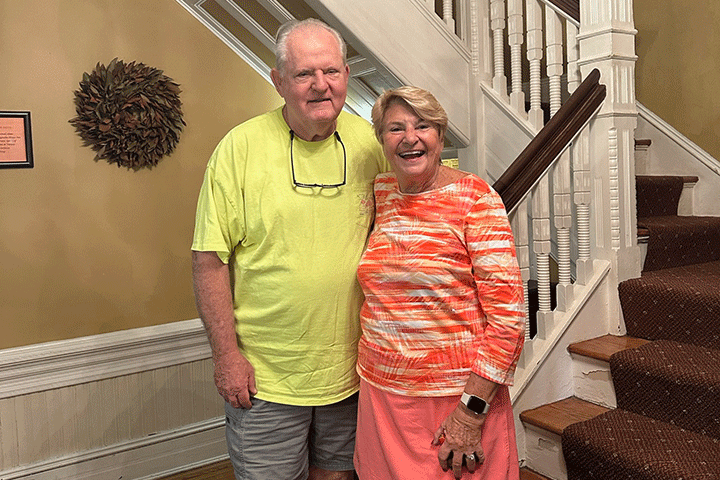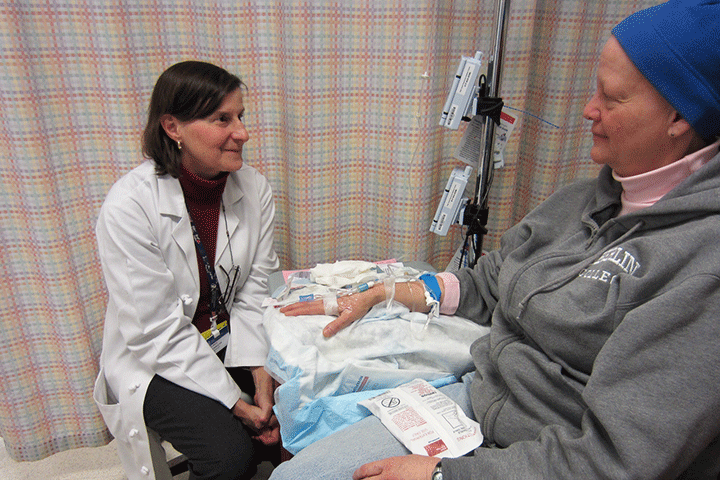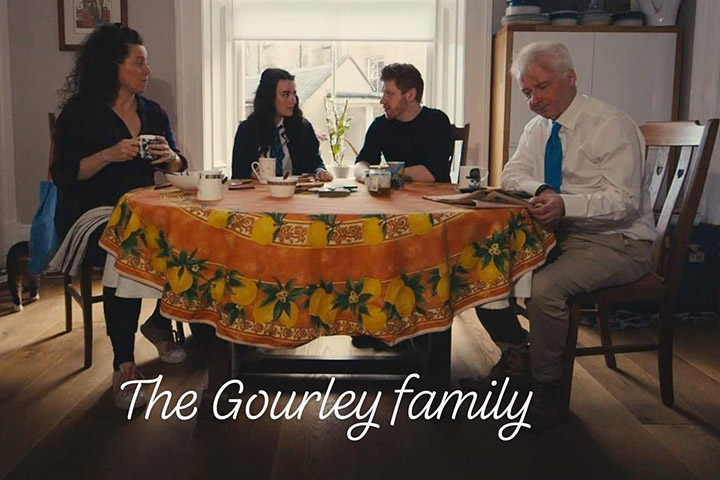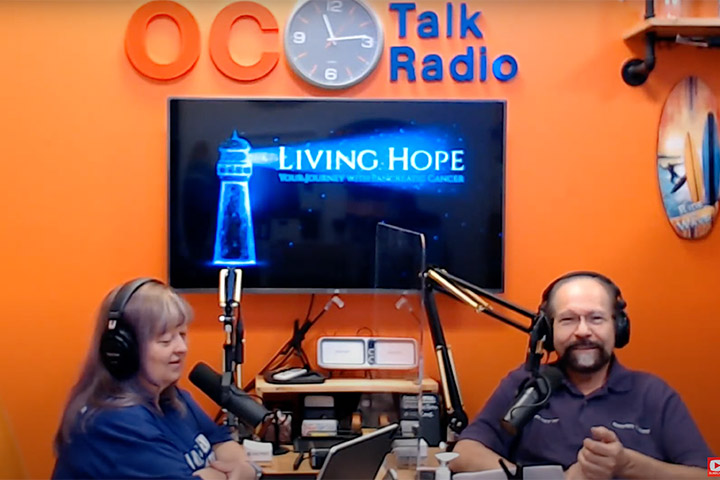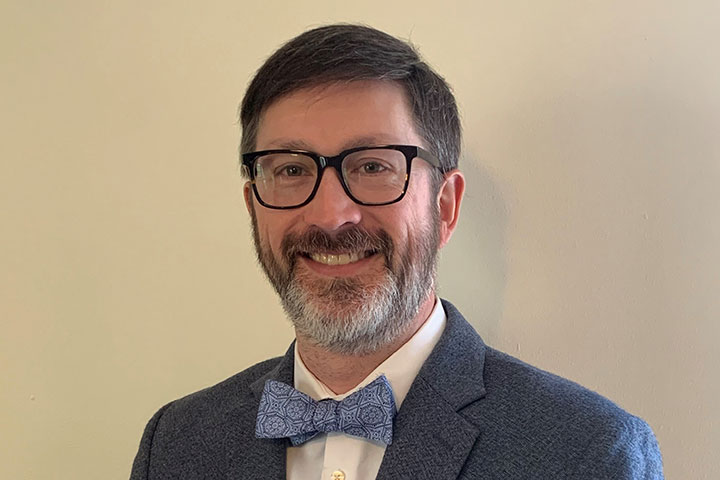International Advocacy Efforts Help Pancreatic Cancer Patients
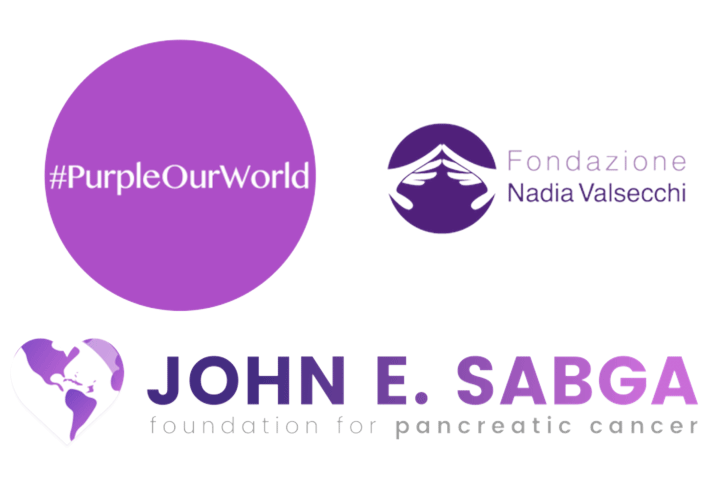
When you receive a pancreatic cancer diagnosis, you want the whole world focused on two things: raising awareness about the disease and advancing research for early detection and treatment.
While the death toll for most cancers is declining, the occurrence and mortality rates for pancreatic cancer are rising. Despite the dismal statistics (or maybe because of them), several small but mighty advocacy organizations across the globe are banding together to instill hope in pancreatic cancer patients and their loved ones.
A Global Push for Change
No matter what your survival odds, the key to navigating pancreatic cancer is finding community. These three following standout organizations are working toward common goals: to extend and improve the lives of all people facing pancreatic cancer. No surprise, all three are members of the World Pancreatic Cancer Coalition.
#PurpleOurWorld
After Australian Rochelle Goulburn’s heroic 16-month battle with pancreatic cancer, her family rallied together to create #PurpleOurWorld—only two months after Rochelle’s untimely death in 2014. Their primary goal: to get the world talking about pancreatic cancer.
“From the date of Rochelle’s diagnosis, and throughout her treatment, we found that there was little support for, and awareness of, pancreatic cancer,” says Rochelle’s daughter, Jessica Abelsohn. “We wanted to do something to ensure that people going through what we went through don’t feel lost and unsupported.”
Enter #PurpleOurWorld. During the first year, their mission was simple: get as many people as possible to wear purple and share a picture on social media using the hashtag #PurpleOurWorld. With the overwhelmingly positive response, #PurpleOurWorld upped the ante in 2015, bringing on as ambassadors journalist Tracey Spicer and National Rugby League legend Robbie Farah, both of whom lost their mothers to the disease. They also partnered with like-minded charities in the pancreatic space to form the Australian Pancreatic Cancer Alliance.
“We know that collaborating with organizations, both in Australia and around the world, is the only way we’ll move mountains,” says Abelsohn. Together with these charity partnerships, #PurpleOurWorld lobbies the government, raises awareness, and helps raise funds for pancreatic cancer research. In the process, #PurpleOurWorld has become a voice for people who have been silenced from the pain of pancreatic cancer—those who have passed away and those who are unable to share their stories because it hurts too much.
“Pancreatic cancer sometimes seems like the underdog because the disease has such a low survival rate. But since my mum was diagnosed in 2013, the survival rate in Australia has jumped from 5.8% to 12%. That’s a massive difference,” Abelsohn adds. Her ultimate dream for pancreatic cancer: to see survival rates flip, so rather than a 12% survival rate and an 88% death rate, pancreatic cancer would have an 88% survival rate. “Imagine how great that would be,” she says.
Fondazione Nadia Valsecchi
Federica Valsecchi was working as a medical researcher in the U.S. when her mother Nadia was diagnosed with pancreatic cancer back home in Italy. By the time doctors detected Nadia’s cancer, it had already spread to her liver. Nadia Valsecchi passed away at age 58. Shortly after, in 2015, Valsecchi started the Fondazione Nadia Valsecchi in honor of her late mother.
“We lost her after only six months,” says Valsecchi. “At the time, it was very difficult to find information about pancreatic cancer.” After her mother died, Valsecchi vowed to put pancreatic cancer on the map in Italy. Without any seed money, she built a website, engaged family and friends, and put her Ph.D. research skills to work, connecting with the top pancreatic cancer experts. And in short order, the Nadia Valsecchi Foundation became the voice of pancreatic cancer in Italy.
“Pancreatic cancer is unique in terms of the complexity of the disease,” observes Valsecchi. “We’re lobbying the government to provide pancreatic cancer patients with access to the best medical care.” In the meantime, Valsecchi and her team are providing pancreatic cancer patients and their family members with the most up-to-date information about the disease through live webinars twice monthly. “During the webinar, patients ask their questions directly to the doctors, and they don’t even have to move off the couch,” adds Valsecchi.
As the Office of Technology Development’s Immunotherapy Project Manager at Memorial Sloan Kettering Cancer Center in New York, Valsecchi works on CAR-T cell technologies. While CAR-T technology is relatively new, it has produced remarkable outcomes for patients who have liquid tumors. “I dream of the day when we see similar outcomes for patients with pancreatic cancer,” Valsecchi says.
The John E. Sabga Foundation for Pancreatic Cancer
When John E. Sabga learned he had pancreatic cancer in April 2016, he traveled from his home in Trinidad to Florida, Texas, and, finally, to Arizona, to access the best treatments. Despite these valiant efforts, John died at age 56 after a 10-month battle with the disease.
He underwent multiple rounds of chemotherapy, various pharmaceutical cocktails, and somehow landed the last spot for a clinical trial investigating gemcitabine, nab-paclitaxel, and vitamin D. Nothing worked.
“His disease was like a house on fire. You put out the fire and then a flame reignites,” says his wife, Natalie Sabga. “After months of treatments, John knew his fight was over.”
John Sabga died in January 2017, and in November of that same year Natalie Sabga launched the John E. Sabga Foundation for Pancreatic Cancer (the J.E.S. Foundation). Within four months, the foundation had raised $250,000, and by the end of 2018, that number climbed to $650,000. The goal: to raise $1 million to help accelerate the race for an early detection test for pancreatic cancer, fund critical clinical trials, and ultimately aid in finding a cure.
The J.E.S Foundation also provides on-the-ground pancreatic cancer education and support in Trinidad and Tobago, and has plans to launch a clinical trial in Trinidad. Unfortunately, COVID derailed those plans for now. While the clinical trial is on hold for at least two years, Sabga and her team continue to serve people who are battling pancreatic cancer, and their loved ones, by providing palliative care services, among other things. “In that way, I’m still trying to save John,” Sabga says.
